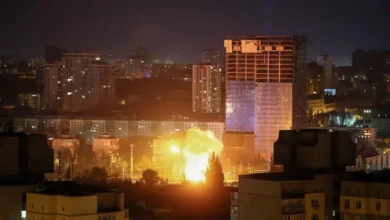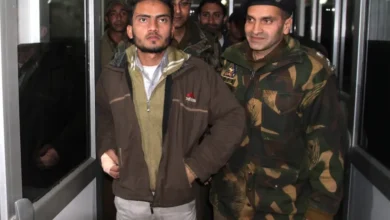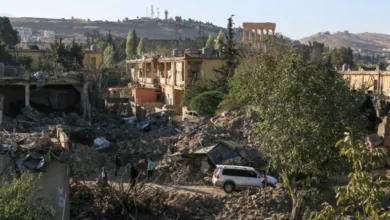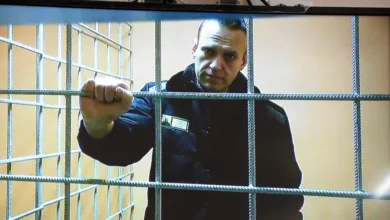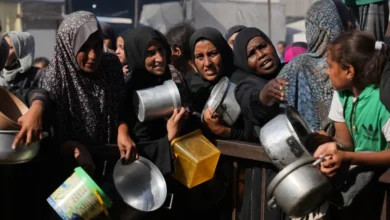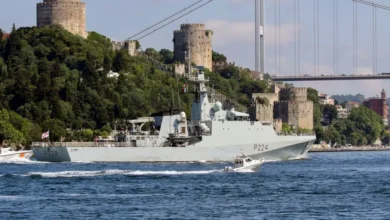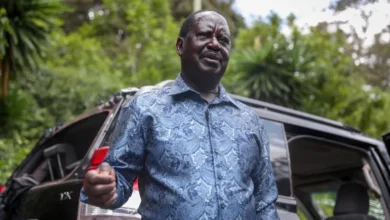Pakistan’s great fall: How former hockey giant failed Olympics test, again
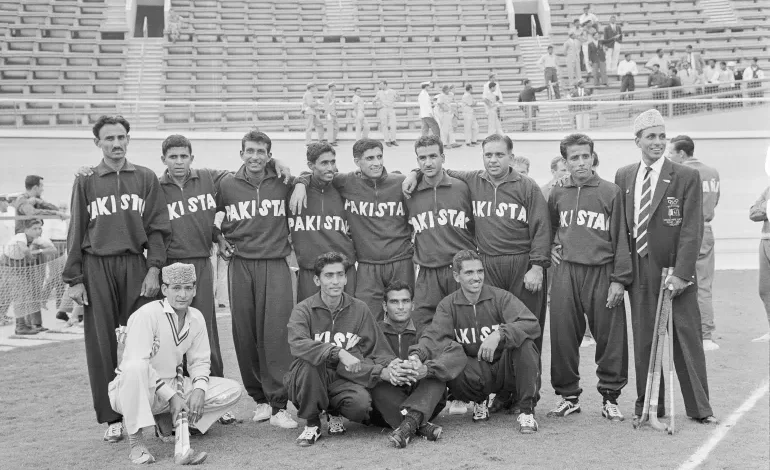
The clock was ticking away, and only eight minutes remained for the Pakistani hockey team to break an embarrassing pattern of decline in a sport it dominated for decades.
But New Zealand forward Hugo Inglis equalised the score in their qualifying match in Oman in January. Then, with just two minutes left for the final whistle, Scott Boyde made the winning hit. New Zealand had won 3-2.
For decades, Pakistan were a dominant force in the sport. They have won three Olympic golds (1960, 1968 and 1984), as many silvers (1956, 1964 and 1972), and two bronze medals (1976 and 1992), making it a near-permanent presence at the games podium.
Pakistan also won an unmatched four of the first eight hockey World Cup tournaments.
But they failed to qualify for the 2014 and 2023 World Cups and finished a poor 12th among 16 teams in the 2018 tournament. In the 2010 World Cup, they finished last among 12 participants.
They are currently ranked 16th in world hockey. And with Pakistan missing out on the Olympics for the third time in a row, questions are mounting: What caused the downfall of one of the world’s most successful hockey-playing nations, and does it have a plan to recover its lost glory?
‘It will take a long time’
The last time Pakistan won an Olympic medal in hockey was a bronze at the 1992 Barcelona Games. The last time they were in contention for an Olympic medal was in Sydney in 2000, losing to the hosts in the third-place playoff.
In fact, 2024 marks four decades since Pakistan last won a hockey gold at the 1984 Los Angeles Games.
Oltmans, who led the Netherlands to World Cup victory in 1998 and had previous stints as Pakistan coach in 2003 and 2018, is among those tasked with making the South Asian country a top hockey-playing nation again.
This year, Oltmans was recruited to train the Pakistani team for two key tournaments: the Azlan Shah Cup in Malaysia, where they reached the finals, and the FIH Nations Cup in Poland, where they reached the semifinals.
But Oltmans says short-term coaching tenures cannot ensure continued success for the team.
“If you fail in a tournament, you cannot change things immediately. There must be continuity and a plan,” he said, adding that it needs a good talent scouting apparatus and a better understanding of how the game has evolved through the years.
“If Pakistan wants to get back to the top, they must have at least a four-year continuous plan,” he said.
‘Victim of own success’
Salman Akbar led Pakistan to their last major hockey win, in the 2010 Asian Games, where he was also declared the best goalkeeper. Five years after retiring from the sport in 2013, Japan hired him as their goalkeeping coach and won the 2018 Asian Games gold.
Junaid acknowledged the failure of Pakistan’s top players when they became administrators. He said a robust system that ensures the development of the sport at the grassroots level no longer exists.
“Schools used to be the nurseries. They would have interschool tournaments, then there were clubs where a talent was spotted. There used to be sports quota in colleges and universities, and players with potential were given scholarships,” he said.
“After academics, players had job opportunities at various organisations, both private and public, where they had set up sports departments. There was a proper structure and players remained engaged with the game round the year,” he added.
But the advent of the 90s saw the commercialisation of cricket, making its popularity soar over other sports. Sports quotas were eliminated and vacant grounds were utilised for building residential units, depriving children of spaces to play. Private schools mushroomed across the country on smaller properties with no facilities or encouragement for sports.
Failure to catch up
As Pakistan underwent political upheaval after the end of an 11-year military dictatorship in 1988, hockey began to evolve globally. Both the developments changed the country’s fortunes.
Synthetic turf slowly replaced the grass grounds on which the game was traditionally played. For a developing nation, it was an expensive change. An average artificial turf today costs close to $500,000, with additional funds required for its maintenance.
The change in surface also meant that other sports equipment had to change — and that too became costlier. Today, an ordinary hockey stick costs 6,000-8,000 rupees ($21-28), while a high-quality one is upwards of 20,000 rupees ($70). Similarly, a good quality hockey shoe suitable for synthetic turf costs 30,000-50,000 rupees ($107-180). This, in a country which, according to World Bank data, has a median income of 76,000 rupees ($266) per month.
Oltmans said the change in playing surface affected Pakistan’s performance and lamented a lack of effort by the authorities to keep up with the change.
Junaid, who has also had multiple stints with the Pakistan team as coach and manager, agreed with the Dutch coach. He accused the Pakistan Hockey Federation (PHF), the government body tasked with promoting the sport in the country, of resting on past laurels instead of preparing for the future.
PHF president Tariq Hussain Bugti told Al Jazeera the single biggest challenge the sporting body faces is a chronic lack of funds.
“We have an annual budget of less than 4 million rupees [$14,350], whereas a single international tour for the national squad costs close to 30 million rupees [$100,000],” he said.
The board, Bugti says, only manages to support the team’s travel with grants from the government.
“We don’t have a league system. We don’t have our own stadium where players can practise, and we had to request the Pakistan Sports Board (PSB) to provide us a hockey stadium to hold training camps,” he said, adding that the PHF lacks a marketing department to generate corporate sponsorship for the national team.
Meanwhile, the PHF has also been battling its own set of problems, including allegations of financial mismanagement by administrators, who were already facing the heat for Pakistan’s repeated failure to qualify for the Olympics and World Cups.
In December, a battle for the PHF presidency saw a former president refusing to accept his removal and starting a parallel federation. The current government resolved the matter after it came to power in February, merging the two bodies and declaring Bugti as the president of the PHF.
His teammate, Sufyan Khan, known for his slick penalty corners, echoed the sentiments. The 22-year-old from Bannu city in Khyber Pakhtunkhwa province said the players need better exposure.
“When you prepare a team, you need to give them four or five years to plan. You cannot assemble a team two or three weeks before a tournament and expect medals. We don’t play domestically. We don’t travel abroad to play bilateral series because the board says they are short of funds. If we don’t play abroad, those foreign leagues won’t see us and we will miss out on opportunities to play, learn and earn,” he told Al Jazeera.
Former national capital Akbar said the lack of a set schedule for hockey in the country was hurting players.
“It cannot happen that a player goes to play in a league, which works on its own schedule, and the PHF asks that player to return or else he will not be selected. And then there is no camp or set routine. There must be coordination for the players’ welfare,” he said.
Lack of innovation
Critics say one of the reasons for the decline in Pakistan’s hockey performance is its failure to innovate — a scenario that is a far cry from when the country actually inspired other sporting giants.
This is the story of what happened behind the scenes, in the lead up to Argentina’s first football World Cup victory in 1978.
He said he has presented a one-year plan about it to Prime Minister Shehbaz Sharif, who is also the patron-in-chief of the PHF.
“We want to ensure that players receive their allowances, get matches abroad, and build our capacity for player development and coaching,” Bugti said.
Recalling his recent trip to Poland for the Nations Cup, Bugti recalled that some officials of the International Hockey Federation asked him about Pakistan’s repeated failures in the game in recent years.
